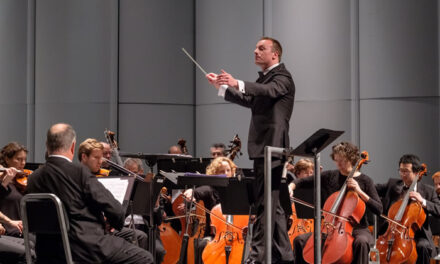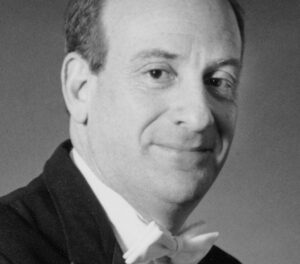Now in its twenty-fourth year, Piccolo Spoleto was founded in 1979 by the City of Charleston Office of Cultural Affairs under the direction of Ellen Dressler Moryl. Aware of how disparity of means might limit access to Spoleto USA events, the City’s outreach series was to help “provide the Spoleto Festival experience for everyone, regardless of their economic, social or physical circumstances[,] and to provide … opportunit[ies] for excellent local and regional artists, writers and performers.” In the early years many events were free but gradually charges have been added. While these have increased they are still nominal and frequently full houses testify to the series’ success. The artistic quality of several musical series has risen in recent years so some are as good as any on the main festival. My own observation is that many locals on fixed or modest incomes who were regulars at the Dock Street Chamber Music series are now attending the Piccolo series. From the beginning, I have found the Early Music Series and the Spotlight Concert Series particularly rewarding.
For more than a decade I planned my regular Spoleto schedule in order to catch the Baltimore Consort on the Early Music Series during the second week of the festival. Last year they weren’t present at all, and Piccolo announces its schedule long after the main festival, so this year I missed all but two of their appearances. A last minute controversy about handicapped access to the intimate French Huguenot Church led to the hasty transfer of the entire series to the very generous Circular Congregational Church on nearby Meeting Street. The space is less ideal acoustically and has a very noisy air conditioner.
We heard the Consort’s “Pluckfest” program on May 28 and “Shakespeare’s Stage Band” on May 30. The first concert featured several fine lute solos by Ron McFarlane – a lovely gentle Prelude and, most memorably, a Passamezze by Adrian Le Roy (1573) that had an insistent rhythm. Most of the music was from the Royal Courts, and the still pure-toned soprano of Custer LaRue was equally at ease in French and English. All the instruments were briefly introduced and explained – tenor and bass viols, a cittern, a Renaissance guitar, a viola de gamba, recorders, and wooden flutes. There’s a good chance that Triad and Triangle music lovers will have a chance to hear their encore, “Berayna,” a folk song about a fox with a repeated nonsense chorus that borders on onomatopoeia, and others collected in Piedmont NC by Fletcher Collins in the 1930s; when the Consort appears on the Elon University campus this fall, such songs will be featured.
The second program brought a familiar mix of dance tunes and songs that have long been in the group’s repertory and on their recordings. LaRue’s ability perfectly to enunciate the dense texts and quirky rhythms of these old songs never ceases to amaze. Thomas Ravenscroft’s ballad “Yonder Comes A Courteous Knight,” from Deuteromelia (1609), about a gallant’s hopes for seducing a shrewd maiden, was typical. The phrase “four-eared fool” referred to a horse with the hapless seducer upon it; he had hoped for a warm reward for carrying the lass home but she “shut the fool out of the gate” in several senses. A number of dances titled ” La Votta” called for the full ensemble and added a large bandora – a large member of the lute family, played by guest recorder virtuoso Steve Rosenberg. (Most members of the ensemble are at ease with many different instruments.) The Consort’s trademark ditty, “Watkin’s Ale,” was given with an inimitable flair, capped by LaRue’s knowing wink.
Sandwiched between these two performances was Vivaldi’s Four Seasons , given by members of the Charleston Baroque Ensemble, which is based at the College of Charleston. It was founded by virtuoso recorder player Steve Rosenberg, who also founded and directs the Piccolo Early Music Series. He was a frequent guest with the Ensemble Courant in Chapel Hill before the early music movement became moribund in the Triangle. Amos Lawrence was the soloist; his playing was generally fine but a few wrong notes crept in, perhaps a side effect from more efforts to ornament than is usual. The son of retired UNC music professor Dr. Rudoph Kremer, Damian, a member of the Charleston Symphony, was the cellist for the ensemble. The ensemble used six violins, a viola, a cello, a bass and a small harpsichord. Two instances in which the viola was set against the violin soloist came off unusually well – in the “Spring” Concerto, the viola is the “barking dog,” and in the “Winter” Concerto, the viola’s harmonics contrast with the soloist’s melodic line.
The Spotlight Concert Series, coordinated by Ellen Dressler Moryl, Larry Long and composer Richard Moryl, has shown a great artistic spurt in recent years. I caught two outstanding and imaginatively programmed concerts. The St. Petersburg String Quartet has been a hit for several seasons and its May 28 concert in the acoustically ideal First (Scots) Presbyterian Church was significant. They played an all Shostakovich program consisting of the Quartet in D, Op. 83, and the Quartet in E-flat, Op. 117, neither of which suffer from overexposure. The Fourth Quartet was written in 1949 and kept secret until Stalin’s death. Jewish elements can be heard throughout the work. The ensemble produced a rich sonority and had excellent intonation in the many high passages. The Ninth Quartet was composed in 1964, a few years after his happy marriage to his third wife, Irina. The second adagio has a melody that seems related to the opening of Mussorgsky’s Boris Godunov , further developed in final allegro, in which the cello’s “sung” recitative is soon picked up by the others. The third movement featured a burnished viola solo.
For the May 29 Spotlight Concert, the choice of two violin concertos whose composers, Gian-Carlo Menotti and Samuel Barber, were closely associated with the founding of the Spoleto Festival USA, was apt and imaginative. Both are similar in mood but distribute virtuoso technical demands differently. A reduced Charleston Symphony was squeezed behind and below the pulpit of First (Scots) Presbyterian Church with the piano used in the Barber under the shallow overhanging side balcony. A last-minute schedule change had guest conductor Jooyang Ahn substituting for CSO Associate conductor Bundit Ungarangsee, whose career has taken off after being chosen laureate and co-winner of the 2002 Maazel-Vilar International Conductor’s Competition. Jason Horowitz, Assistant Concertmaster of the Colorado Symphony, was the able soloist in Menotti’s Concerto in A Minor. All three movements have sections that give the violinist a chance to show off his technique. CSO Concertmistress Isabella Lippi was the superb soloist in the autumnal and introspective Barber Violin Concerto, Op. 14. Playing from memory, her phrasing and carefully shaded dynamics in the two slow movements were ideal while her technical mastery was more than sufficient for the rapid fireworks of the last movement.
This year I was able to sample a midday Young Artist’s Series concert in the Recital Hall of Simons Center for the Arts on the College of Charleston campus. These events involve music students who can range from undergraduate up. We attended the May 29 program, “Gershwin and All American Song,” which featured vocal students of Deanna McBroom in Broadway show tunes. The piano accompaniments of Robin Zemp were excellent, and the whole program was tied together nicely with choreography prepared by Robert Ivey. Since the level of training of the students varied, I won’t review them individually. Diction was very good, and there was no lack of enthusiasm. Some voices were further along in developing even support and projection than others. An audience of senior citizens and more young people than usual got a good show. The songs ranged from Kurt Weill’s “Lonely House” and selections from Bernstein’s “I Hate Music” to a Gershwin medley and a hilarious “I Want to Be a Prima Donna” by Victor Herbert.












